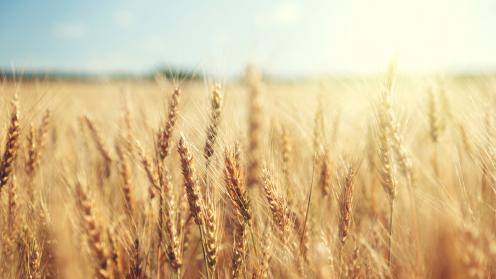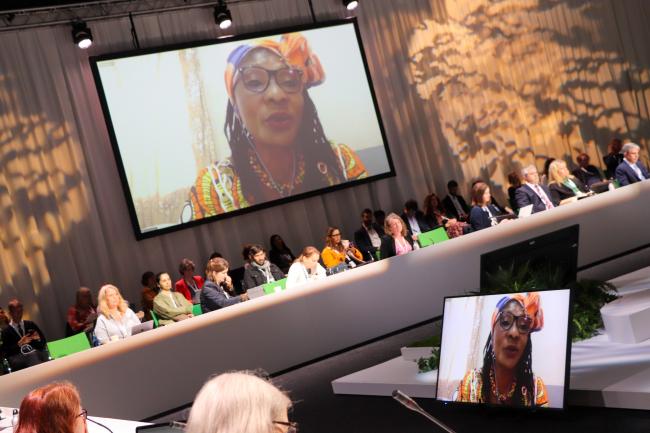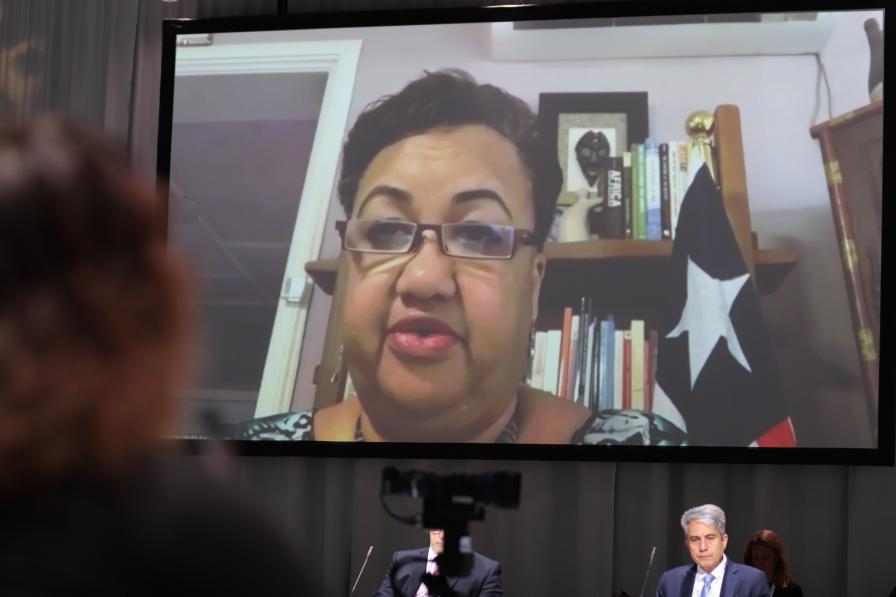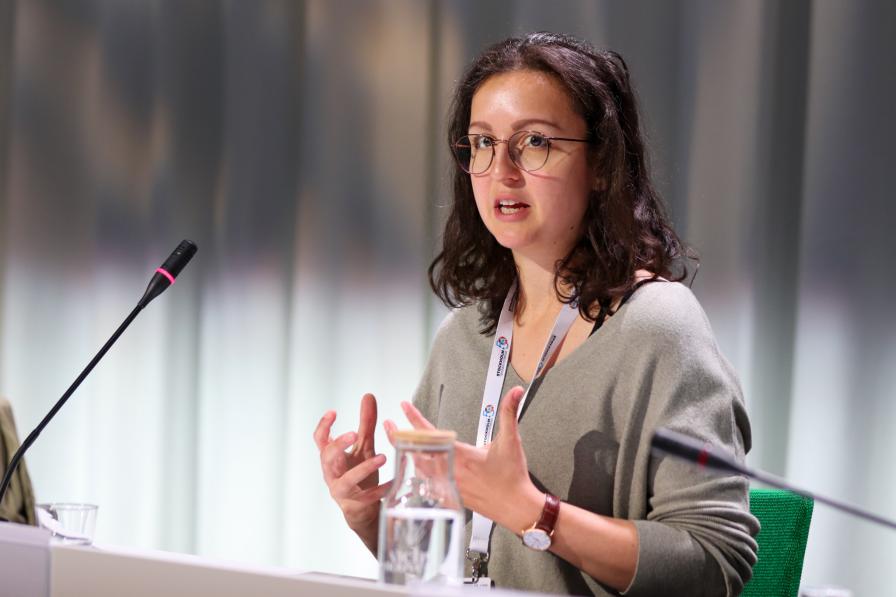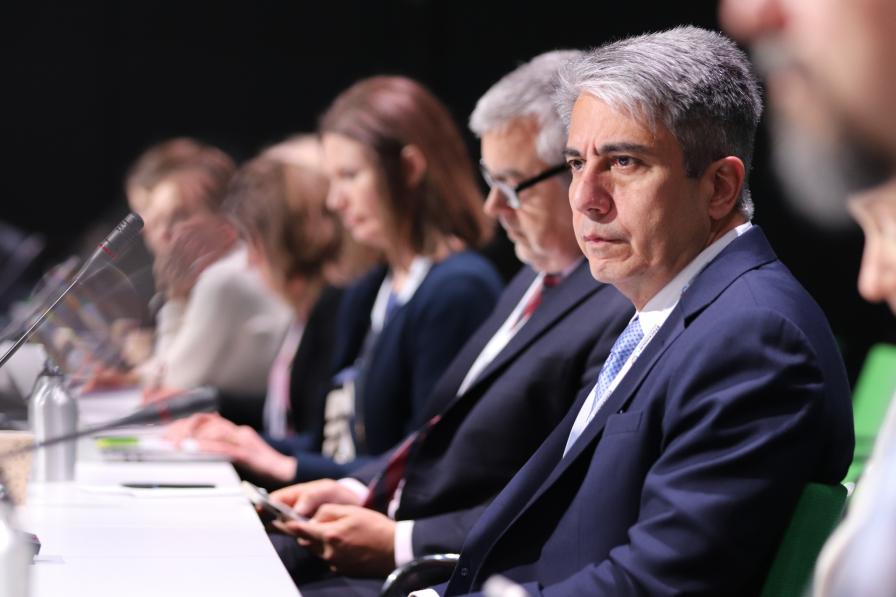About
Transforming agrifood systems to become more efficient, inclusive, resilient, and sustainable can tackle multiple environmental issues while delivering gains for the most frequently marginalized groups.
Organized by: the Food and Agriculture Organization of the UN (FAO), the UN Development Programme (UNDP), the UN Environment Programme (UNEP), and the Governments of Belize, Liberia, and the United Kingdom
This side event showcased transformative actions and solutions for a people-centered green recovery, and scaling up finance to support green and climate resilient transformation of agrifood systems, especially for smallholder farmers, women, youth, and Indigenous Peoples.
Key messages from the event include:
- Women, youth, smallholder farmers, and Indigenous Peoples play a key role in the social element of transformation of agrifood systems;
- Transforming agrifood systems to become more efficient, inclusive, resilient, and sustainable is a key solution to climate change, biodiversity loss, and ecosystem degradation crises, while delivering food security and nutrition for all; and
- Science, good data, policy, innovation, and investment are essential components to a green and climate-resilient transformation of agrifood systems.
Maria Helena Semedo, Deputy Director-General, FAO, opened the event noting agriculture and food systems are the world’s largest economic system, measured in terms of employment, livelihoods, and planetary impact. She explained that transformation of agrifood systems towards sustainability is a key path for COVID-19 recovery and the multiple crises facing the global economy. For this to happen, she added, we urgently need both governmental and financial institutions to recognize the positive impacts of land restoration and sustainable use on biodiversity and ecosystem health.
Jeanine Milly Cooper, Minister of Agriculture, Liberia, noted that 70-80% of rural populations depend on agriculture for their livelihoods, but are still food insecure and dependent on food imports. She called for scaling up local food production and reducing the reliance on food imports, so all people have access to a healthy diet. She also stressed the need to have accurate data and scale up innovations in food systems.
Nelson Adrián Peña, Minister of the Environment, Uruguay, described the importance of grassland-based livestock production and how livestock grazing systems store carbon and protect biodiversity. In Uruguay, he said, they graze livestock on marginal grasslands that cannot be used for crops and, by doing so, one cow can protect one hectare of land, safeguarding biodiversity and ecosystem services.
Elizabeth Mrema, Executive Secretary, Convention on Biological Diversity, noted 75% of the world's food comes from just 12 plants and five animal species, which makes the food system less resilient to threats like disease, pests, and climate change. She called for enhancing the diversity of the food supply, increasing plant consumption, reducing meat and fish consumption, and reducing food waste.
In a moderated panel discussion, an all-women panel focused on transformative solutions for greening agrifood systems with an emphasis on small-holder farmers, women, youth, and Indigenous Peoples.
Janine Coye Felson, Ambassador and Deputy Permanent Representative of Belize to the UN, noted the structural challenges faced by small island developing states (SIDS) and that international concessional finance is critical. The Polluter Pays Principle needs to be implemented, she added. In Belize, sustainable fisheries are critical and they have moved away from open access to fisheries in a way that has empowered the fishing community leading to more sustainable fisheries, she said.
Cherrie Atilano, AGREA, Philippines, described the importance of women and youth in agrifood system transformation and how to harness the potential of youth to replace ageing farmers, especially as young people are demanding more sustainable food.
Hannah Ashley, Department for Environment, Food and Rural Affairs, UK, stressed the importance of policy, innovation, and investments to improve food resilience and security. She described how the UK is building space to fund and invest in more sustainable practices at home and abroad.
Cécile Ndjebet, Cameroonian activist and winner of the 2022 Wangari Maathai Forest Champion Award, stressed the barriers for rural women who produce 70% of the food crops in Africa, including land tenure, access to finance, and moving from food production to development of enterprises that add value. She called for getting youth interested in agriculture and forestry, beginning in primary school.
Tarcila Rivera Zea, Centre for Indigenous Cultures of Peru (CHIRAPAQ), said the 480 million Indigenous Peoples have the knowledge and the practices to ensure green and climate-resilient agrifood system transformation. She said that Indigenous Peoples are not the problem but want to be part of the solution.
In conclusion, Jyotsna Puri, International Fund for Agriculture Development, summarized the key messages, highlighting the need to live in harmony with nature, and the important role of small-holder farmers, women and youth, and Indigenous Peoples in championing the transformation of agrifood systems for people and planet.
Contact: Lev Neretin | Lev.Neretin@fao.org
More information: fao.org/events/detail/fao-at-stockholm-50/en
